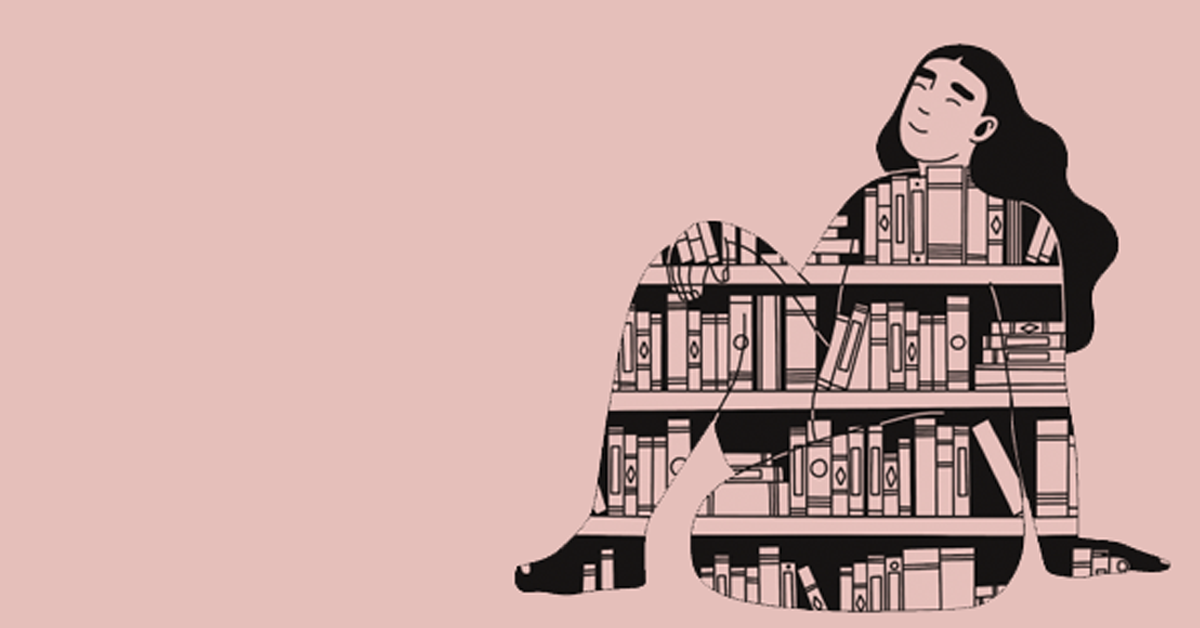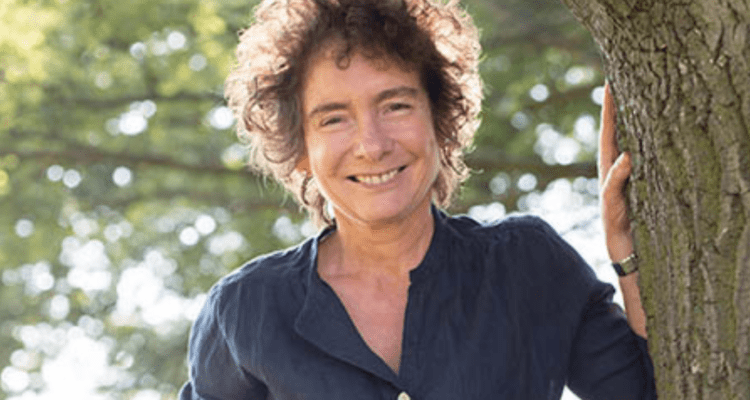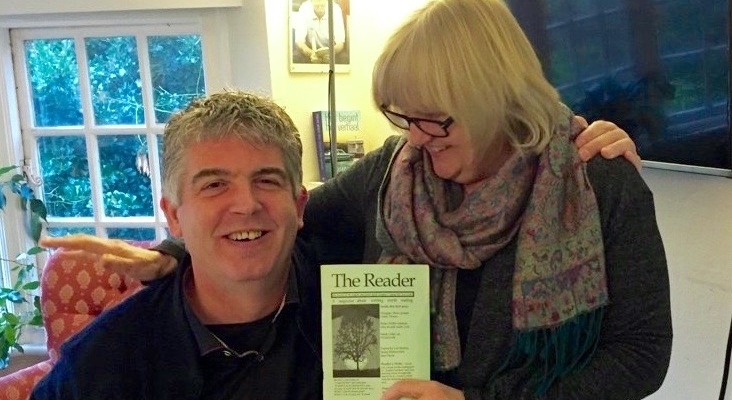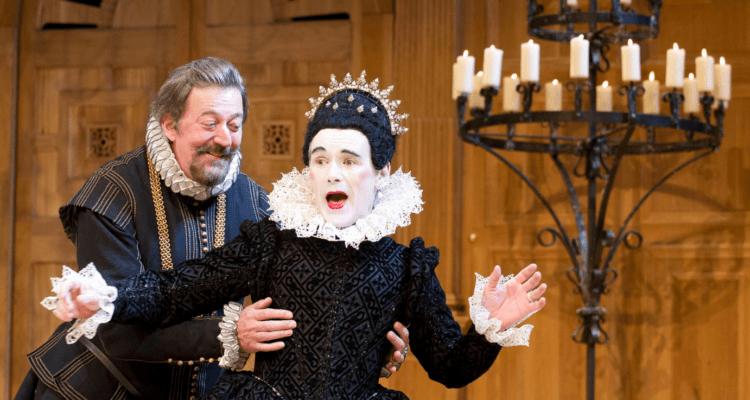Reading For Life: The Reader Magazine
This article is taken from issue 71 of The Reader Magazine, newly relaunched for 2020. For more brilliant books and bookish things, for readers of all ages - become a subscriber.

The Reading for Life feature in each issue of the magazine will look at the use of reading in relation to health, and in health contexts. For this issue The Reader met Iona Heath, a family doctor who practised at a London clinic for over 30 years, and a former President of the Royal College of General Practitioners. Dr Heath is known internationally for her impassioned and clear thinking on the causes for which she campaigns, and for her writing in the British Medical Journal. In articles and presentations, she very purposefully weaves in quotations from poems, literary essays and novels, from Montaigne to Seamus Heaney, in order to illuminate her thinking. The literature gives force, and a breadth of understanding and human experience to her ideas, which are also brave and revelatory. The Reader discovered how her reading and her professional life first began to blend in this way:
In 1989, I was 39, and I’d been a partner in our practice for about 13 years. The partners allowed each other a three-month sabbatical every ten years, and it was my turn. At that time, my children were young so I couldn’t go travelling or anything like that. So I made a plan: in the afternoons I was going to be a perfect mother; I was going to be attentive when they got home from school, bake cakes and do all that sort of stuff. And in the morning, I was going to read novels on the sofa. I wrote to ten people I admired, mostly colleagues in medicine, and asked them which novel they would choose if they could only read one for the rest of their lives. The most brilliant list emerged, with a consensus around the top four novels: Anna Karenina, Bleak House, Middlemarch and Emma. I’d read voraciously as a child, but medicine stops you reading, so I hadn’t read any of those books. Of course, the first part of my plan went out of the window: the children came home and I was still reading on the sofa. ‘Tea’s downstairs, help yourselves…’.
It was then that I began noticing sentences or passages from the books that resonated with my world and my experience, and I would write them down. I still do it. I’ve just read Mill on the Floss for the first time. I read this passage and it’s extraordinary, George Eliot could really have been writing about our current political situation:
‘It is easy enough to spoil the lives of our neighbours without taking so much trouble; we can do it by lazy acquiescence and lazy omission, by trivial falsities for which we hardly know a reason, by small frauds neutralised by small extravagances, by maladroit flatteries, and clumsily improvised insinuations.’
Why does medicine stop you reading?
There’s so much to read when you’re studying, it’s so intense. And then you go into work. I’m sure I read something in the years before this sabbatical, but nothing of substance. Which is a real shame.
But you read a great deal when you were younger. Did your parents read to you?
Yes definitely, my mother read to us, when we were small. And as I was growing up, I did a lot of reading under the bedclothes in summer when I was supposed to be asleep, or lying about in the garden.
So when you studied medicine at university, that’s when the reading for pleasure starts winding down…
Being eroded, yes. Actually, that probably started happening towards the end of school. We read Silas Marner for O-Level and I hated it. I still haven’t been able to come back to it yet.
Did you come from a family of doctors?
No. I don’t know why I wanted to do medicine. What I do know is that my mother was planning to study medicine when the war broke out, and by the end of the war she’d married my father after only knowing him for six weeks. I’m sure it must have been partly vicarious fulfilment of her ambition, but it wasn’t terribly overt.
When you started to study medicine did you imagine you would become a GP?
I always wanted to be a GP. My mother proudly told our family doctor, who had known me since I was a child, that I was going to study medicine, and he told me (quoting someone else I now realise) that in hospital the diseases stay and the people come and go and in general practice the people stay and the diseases come and go. It’s actually a very important differentiation. I’ve quoted that myself to medical students because they need to decide whether they are more interested in the science of disease or if they are more interested in how disease affects people. If you get on the wrong side it’s very frustrating for all concerned. I think I always knew what I was interested in.
You were a GP for 35 years in the same practice in Kentish Town, in north London. You must have got to know your patients very well.
Absolutely. I miss them. It was endlessly fascinating. The things people said, they way they used words, the way they approached life. The way some people are unbelievably stoical and courageous and enduring, and other people just can’t cope with anything.
What’s the most challenging part of being a GP?
It’s very hard to like everyone, so one of the hardest parts of the job was struggling to like people or at least to find something interesting about them. That’s where literature, or literary thinking, can help – if someone is boring you to tears or driving you crazy, you have to try and find out something tangential about their lives so you can keep paying attention.
There was an old lady, the sort of lady who always wears a thick woollen coat and a tea cosy on her head. She wasn’t my patient, and I knew very little about her except that she’d been in a mental hospital when she was younger, in the 1920s or 30s, which at that time would usually have been a punishment for some kind of sexual indiscretion. Her mother had only recently died, aged about 90, and had apparently been tyrannical. It was never clear why this patient was coming to see me, and being young and relatively inexperienced I would spend the whole consultation time trying to get her out of the room. One day we were sitting in the consulting room and this old lady got up, turned around, and backed on to my lap. It was the most straightforward way of asking for attention that she knew. So, when I’d persuaded her to return to her own seat, I did what I should have done at first, which was to ask her about her life. I discovered she had lived her whole life in Kentish Town, living now just two streets from where she was born, and she had only once been out of London, before the war, on a day trip to Margate. After hearing that I saw her for the first time, and you only need that tiny bit of information to see someone in a completely different light. And she could see immediately that I was looking at her differently, with interest, for the first time. She hardly needed to come and see me again after that. All she needed was attention, as Simone Weil says.
‘The afflicted have no need of anything else in this world except someone capable of paying attention to them.’ Simone Weil, Waiting for God
You started your serious reading in 1989 after thirteen years on the job, but it seems to me that you have always approached your patients like a reader, you’ve always had a reader’s interest in them.
I think they [the patients] taught me how to approach them. That experience with the old lady taught me. And another patient: I met her for the first time when we were on the maternity ward together and she had a child that was probably suffering with fetal alcohol syndrome. Then I saw her as a patient for over thirty years after that. She had no education, she had tried to commit suicide countless times, but after having her child she never tried again. She was an incredibly courageous woman. She once refused to take her child home from casualty because she was worried about the girl’s breathing. She walked out of the hospital, insisting the child was too ill for her to look after at home. When she came back the next morning, the doctor came and shook her hand – the child had suffered a respiratory arrest during the night, and at home she would almost certainly have died. This woman really taught me to listen. She would start her stories of what had happened since her last visit to me, and if I interrupted her, she would stop and begin again at the beginning. I learnt a very good lesson: do not interrupt.
The patients teach you to listen and they teach you the benefits of listening. During my sabbatical I read Timothy Mo’s Sour Sweet, which had been shortlisted for the Booker prize a few years earlier. Mo is British, of Chinese origin, and I remember a description of a character who sounded normal when she spoke in Cantonese, but when she was speaking in English her voice would become strident. I found this to be absolutely true when dealing with my Chinese patients. You marry those observations from books with what you are seeing in the surgery and you become more forbearing – you realise, in the case of the Chinese patients, that it’s a linguistic thing, not an attitude, and that helps.
The books give you a breadth of experience without having to travel the world.
I think that’s a quote from another book! It’s certainly true. It’s that combination of real people telling you their real stories with the sort of insight that novelists bring. There’s a bit of Dickens, where he says that the doctor knew he could soothe a patient by touching her:
‘He knows that by touching her with his skilful and accustomed hand he can soothe her yet more readily.’ Charles Dickens, Bleak House
That’s really important, that sort of touch. We did a study in the Royal College of General Practioners about ethnic minority patient consulting. One of the lessons that came through very clearly was that if someone is having a translated consultation, you should use touch to show that you have understood. For example, if the translator explains that the patient has a pain in her knee, the doctor must reach forward and touch the knee. It’s sounds obvious when you think about it, but in fact you often don’t think about it. But Dickens knew it.
There must have been extraordinary range of people, languages, ethnicities among your patients.
Fantastic. The best possible range, really. You had the white working-class population, some of traveller origin, a lot of Irish, whose forebears came over to build the railways. Then the smattering of QCs and prize-winning novelists to keep you on your toes. And then every wave of migration – Vietnamese boat people, Somalians, Kurds, Iraqis, etc, etc.
Did this variety have the effect of making you think there are types of people and types of complaint, or did you abandon any preconceptions and expect something completely new every day?
You have to find a balance between those two viewpoints. You have to classify. I do that walking down the street – oh, that’s this sort of person, or that sort of person. But then you have to check your assumptions, always check.
How long did you spend with each patient?
The consultations were scheduled to be ten minutes each, but I would average about 13 minutes. People always say ten minutes is much too short. I think it is too short, but only because now it’s expected that young doctors should be able to see a patient they don’t know and make a diagnosis, the correct diagnosis, in a single ten-minute encounter. It’s completely unrealistic. Illness has a timeline, a story to it, and often you have to wait and see which way it’s going. It’s much better to say: ‘There’s a number of things this could be, I think it would be a good idea if you come back and see me in a weeks’ time and ring me in between if you feel you are getting worse.’ You can’t do that now, really, the pressure is on.
I gave another talk recently about why GPs should read poetry, and it’s because of the existence of uncertainty in poetry. Young doctors are generally afraid of uncertainty, but it is an invaluable quality, and creative literature is full of it. Chekhov said the role of the artist is to ask questions, not answer them. This is also incredibly important in medicine too, and particularly for general practice, because it will always be uncertain, you can never be sure. You are dealing with a unique individual every time a patient walks into your consulting room and sits down, so if you can hold on to that uncertainty, it gives you leave to doubt, to question, to review, to think again, to listen, to ask questions.
Do you think it’s possible these days to protect that uncertainty?
Yes, I do, but you have to listen. If you don’t listen, that’s when you get into trouble with the patient. That’s when the patient’s distrust or blame gains ground, if the patient says nobody listened to me, nobody touched me.
We are back to Dickens.
Yes, and the importance of listening to the story the patient tells you and listening to the words they use to tell it. You have to understand the context. The French Caribbean poet Aimé Césaire said poetic knowledge is born in the great silence of scientific knowledge [in the essay Poetry and Knowledge, 1944]. He uses an Aldous Huxley story about a lion to explain this – you can’t understand the lion, he says, unless you also know about the antelope that the lion eats, and the grass that those antelope eat. Without that context, which is poetic knowledge, the scientific knowledge is barren.
A professor of general practice in Bristol did a study of transcripts of people going to a rapid access chest clinic – which is where you go if you get chest pains. He could see very clearly from the study that when the patients said things that were not relevant to a diagnosis of chest pain they were completely ignored. You can’t do that in a pre-diagnostic situation, especially in general practice, you can’t narrow things down too early, so you have to be able to listen and to interpret words. Even more importantly, you’ve got to be able to use words to communicate to all sorts of different linguistically capable people, in a way that doesn’t terrify them and gives them back some control. You need a vocabulary and you’ve got to use it sensibly – that is what poets can teach you. Reading poetry will teach you that words have nuance and subtlety that numbers don’t have. Old medical education was based on case histories; it was word based and description based. We’ve lost that, and medicine now totally prioritises numbers over words. There are too many judgements just made on numbers, too much concentration on disease which is the scientific construct and not enough concentration on symptoms which is the suffering, the human side. That’s what you need to be dealing with, it doesn’t matter about the disease.
That was another lesson that I learnt from a patient early in my career. I was about 24 years old, just starting in the practice; she was about the same age and already had two kids and a difficult husband. I diagnosed she was hyperthyroid and I really thought I would solve all her problems, that we’d treat the thyroid toxicosis and all would be well. But of course, nothing changed – I saw her for the next thirty-five years and it pretty much went from bad to worse, though she did survive.
That switch between thinking about the disease and the patient, the general and the particular – that’s another thing the literature can demonstrate, isn’t it?
George Eliot does that switch, and Dickens and James Joyce. That was the constant challenge of the job, and that’s why you make mistakes. We say to young doctors ‘think common, think serious’ – think what’s a common diagnosis and also think what serious complaint could have the same symptoms. You’ve got to at least think of both sides, because if you don’t think of it you can’t diagnose it.
Now everyone has access to the internet and can look up their symptoms and bring their own diagnosis to the doctor. Is that a big change?
It is a big change. Most of the time what they suggest is hilarious and other times they are exactly right. The HIV epidemic taught us that some patient groups will know more about their disease that you, the GP, will. They will put a lot of effort into studying their particular disease, whereas the GP doesn’t have the time to put into studying just one disease. The HIV/Aids crisis was a very specific situation of course, but it applies to a certain sort of patient. It’s important to remember there is a knowledge gap. What we know as doctors doesn’t compare with what we don’t know. On the other hand, in a practice in a deprived area you will certainly have fewer well people coming in with imagined illnesses based on Googling their symptoms. I nearly wrote an article about how health inequality would be even worse if medicine wasn’t harming the rich. Society harms the health of the poor, but medicine harms the health of the rich, because they volunteer for it. When patients came and asked if they should have this test or that, I would usually say, ‘go away and be rich and happy and all will be well.’
You encourage young doctors to read, but what do you think should be the relation between books and patients?
The Reader held a conference at the Wellcome Centre several years ago. I was invited to be a speaker, and another guest speaker was a member of a shared reading group. She said the group was the first situation she’d ever been referred into by a health professional when she was not there as a mental health patient but as a person. That is unbelievably important. I think that’s another thing literature teaches you: to resist putting people into a box, such as a mental health box, because it can be completely debilitating.
The other thing I discovered when I went to a trial shared reading group at that conference – I had believed I was a sophisticated reader, but in this trial group, stopping every now again to discuss the reading, the other participants came up with the most amazing insights and ideas about the text that had just never occurred to me. Even if you’d studied a text for years you could still walk into a shared reading group and hear something completely unexpected about the story or poem being read.
I think the first instance of prescribing books on the NHS was a tremendous missed opportunity as it was sending people to get specific titles on anxiety or depression or insomnia. But I also don’t like the idea of bibliotherapy. John Berger says to really appreciate a work of art you have to be looking in the same direction as the artist, and I think that’s true of poetry too. Some poets say nothing to me, sometimes there’s just one poem in a book that is absolutely for me. As I said about the reading group, someone else will bring a different viewpoint to a poem or a book. You can’t send someone to a work of literature and expect a specific response. And I don’t think making medical students read novels will necessarily turn them into better doctors. It could help, but mostly you find the students who read are already good doctors because they have that sensibility.
It’s not an easy answer. It was so helpful, as a GP, when a patient carried in a book that they’d been reading in the waiting room, because then you could ask about it and open up a conversation that way, but of course that’s a certain type of patient. There were plenty of homes in Kentish Town with no books, no printed word, no books for adults or children. You don’t want to impose your view of the world…of course it’s possible to go through life without reading, but I’d regard it as a very impoverished life.
You’ve been deeply engaged in public life for so long – what’s making you angry these days?
I’ve been involved internationally in general practice for a long time and I know we can learn so much across borders, so I can’t bear this current wave of insularity. I can’t bear this idea that ‘Britain stands alone’. After the Second World War, the NHS’s founder William Beveridge said that ‘the purpose of victory is to live into a better world than the old one’. The First World War was memorialised in every village and town, but after the second war people didn’t want that, they wanted a different sort of memorial which was a better world in which everyone was valued and cared for. Now we are in the process of dismantling that legacy at the same time as putting up loads of memorials. I’m sure there is a link between all this looking back and memorialising and meanwhile neglecting people who are here now. I have never been politically afraid in my life, but I am starting to feel fearful about this political situation.
What gives you hope?
Pendulums always swing. The fact that young people in this country generally want to stay in Europe. There are still a lot of good people out there, working, writing. I’ve been accused of singing for the choir, talking to people who already agree with me. But I don’t know if there’s anything wrong with that. People need to feel they aren’t alone.
Share
Related Articles

Reader Revisited: Jane Davis in Conversation with Jeanette Winterson
We're taking a trip down memory lane and revisiting articles from The Reader Magazine. This article first appeared in issue 44.…

Reader Revisited: An Interview with Het Lezerscollectief (The Readers’ Collective)
We're taking a trip down memory lane and revisiting articles from The Reader Magazine. This article first appeared in issue 73.…

Reader Revisited: An Interview with Mark Rylance, actor and writer of ‘I Am Shakespeare’
We're taking a trip down memory lane and revisiting articles from The Reader Magazine. This article first appeared in issue 29.…


